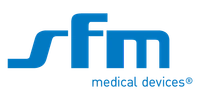The pharmaceutical industry is under increasing pressure from rising healthcare costs, complex regulations and the growing demand for innovative treatments. The rapid advancement of biotechnologies and personalized medicine underscores the urgent need for improved drug delivery solutions. In the coming years, pharmaceutical companies will need to focus on formulation and administration efficiency, cost reduction, alignment with ESG goals, compliance with investor taxonomy criteria and greater independence in supply chain operations. These priorities will influence how companies attract investment and remain competitive in global healthcare markets.
How the Pharmaceutical Industry is Transforming Delivery Systems
Producing effective drugs alone is no longer enough. Modern drug delivery systems now integrate advanced technologies that precisely target treatment, improve absorption and reduce side effects. Techniques such as microencapsulation, nanoparticle delivery and implantable devices support controlled, site-specific drug release. These delivery methods significantly enhance therapeutic outcomes and patient adherence. Data collection, patient monitoring and analytics are also emerging to be essential, helping to advance more personalized healthcare solutions.
For many healthcare professionals, inefficiencies or compliance gaps in traditional delivery methods often go unnoticed. Advanced diagnostics and monitoring tools embedded in smart delivery systems support continuous patient tracking and help optimize dosing schedules. The market demand is shifting toward intelligent drug administration systems that can adjust dosing in real time, opening the door to digital therapeutics and new business models built around precision dosing and personalized care. Transparency and effective use of patient data remain essential to fully realizing the potential of these innovations.
Advanced drug delivery technologies are increasingly integrating with diagnostics and digital health solutions. This combination introduces both technical and strategic challenges for pharmaceutical companies, healthcare providers and technology developers. Emerging delivery methods, including automated injectors, wearable infusion systems and digitally enabled oral drug delivery platforms, offer the potential to improve therapeutic outcomes and enhance the patient experience.
Pharmaceutical companies are playing a more active role in patient care pathways, becoming key contributors to treatment delivery and outcomes. As healthcare becomes more patient-focused, connected drug delivery devices and digital platforms allow companies to improve treatment effectiveness, lower hospitalization rates and support better long-term health outcomes. At the same time, there is growing emphasis on biologics, gene therapies and personalized medicines, all of which depend on advanced delivery systems that ensure both efficacy and patient safety.























